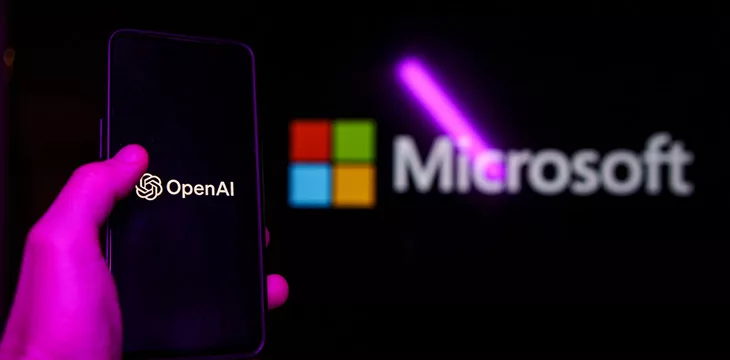|
Getting your Trinity Audio player ready...
|
OpenAI co-founder Sam Altman’s announcement in November that Microsoft (NASDAQ:
MSFT) will get a non-voting seat on the artificial intelligence (AI) research firm’s board has garnered the attention of the United Kingdom antitrust regulator, which is now looking into investigating the parties’ multibillion-dollar collaboration.
In a statement on December 8, the Competition and Markets Authority (CMA) sought Microsoft and OpenAI’s comment on the recent developments, which they are weighing as a potential breach of anti-competition laws.
The CMA also urged interested third parties to share their opinion on the latest partnership and whether this constitutes an “acquisition of control.”
Industry stakeholders are expected to comment on the potential impact of such a merger in the U.K.’s AI ecosystem. The invitation to comment (ITC), designed as an information-gathering stage, is widely considered a precursor for a formal investigation by the CMA, with the regulator seeking the input of relevant stakeholders, academics, and affected parties.
“The invitation to comment is the first part of the CMA’s information gathering process and comes in advance of launching any phase 1 investigation, which would only happen once the CMA has received the information it needs from the partnership parties,” said Sorcha O’Carroll, CMA Senior Director for Mergers.
Recent developments in OpenAI’s corporate governance, including an investment by Microsoft, the provision of cloud services, and technology collaboration between both firms, may have prompted the CMA into launching an investigation. The presence of Microsoft on OpenAI’s board is seen as a turning point, with the CMA seeking clarification over the exact details of the arrangement.
“The CMA will review whether the partnership has resulted in an acquisition of control – that is, where it results in one party having material influence, de facto control or more than 50% of the voting rights over another entity – or change in the nature of control by one entity over another,” read the statement.
Microsoft has since clarified the extent of its relationship with OpenAI, stating that it occupies a non-voting position on OpenAI’s board and will only observe proceedings.
Alongside the ITC, the CMA will continue exploring the impact of AI models and other emerging technologies on consumer protection and competition. Meanwhile, Microsoft has invested in a multibillion-dollar initiative to improve AI infrastructure in the U.K. after previously coming within the crosshairs of the CMA following the Microsoft-Activision debacle.
Hard stance against AI monopoly
Previously, the CMA has iterated its decision to crack down on potential breaches of existing antitrust rules by AI developers. In September, the CMA urged the U.K. government to impose watertight AI guardrails, proposing a blueprint for accountability and transparency.
The CMA’s fears include the risk of larger entities dominating small AI developers, misinformation, privacy violations, and slow-paced development.
“That’s why we have today proposed these new principles and launched a broad program of engagement to help ensure the development and use of foundation models evolves in a way that promotes competition and protects consumers,” said CMA Chief Executive Sarah Cardell.
In order for artificial intelligence (AI) to work right within the law and thrive in the face of growing challenges, it needs to integrate an enterprise blockchain system that ensures data input quality and ownership—allowing it to keep data safe while also guaranteeing the immutability of data. Check out CoinGeek’s coverage on this emerging tech to learn more why Enterprise blockchain will be the backbone of AI.
Watch: Turning AI into ROI

 07-13-2025
07-13-2025 





